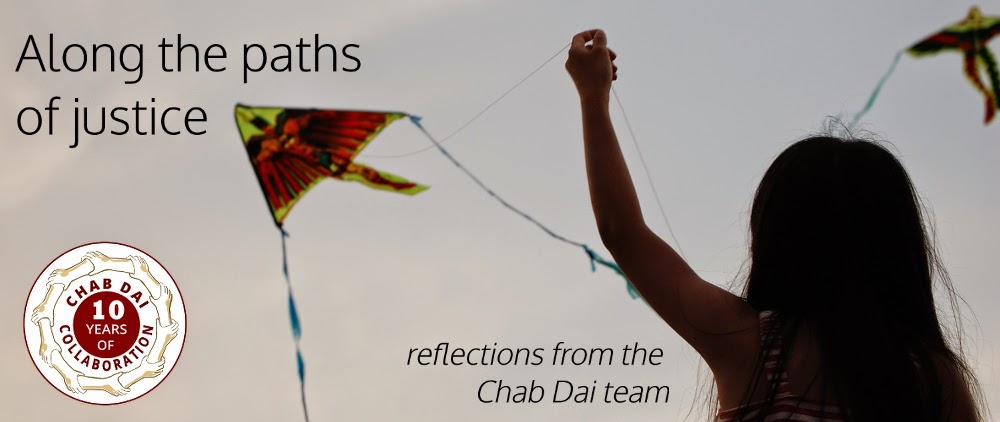Recently Charlie and I were asked to contribute to World Vision Canada's French publication on development issues and church involvement. We were asked a number of questions on short-term missions, a subject about which we have much to say! The whole issue will soon be available (although only in French) here. We wrote our submission initially in English, so here it is!
Q: What is it like to receive short-term mission groups?
Receiving
short-term mission groups takes a lot of work on the part of the receiving
organization, in terms of preparing for the group, hosting and leading the
group, and often in catching up on missed work after the group has gone. There
is a lot of preparation that goes into hosting a group that the traveling team
is not aware of. If a host organization does not have an assigned short-term
mission coordinator, which some do, other project staff will probably have to
work overtime to prepare for and accommodate a visiting team.
We have
heard from various field workers (both local and expat) that the groups who
visit their programs often promise continued support, such as staying in touch,
raising funds, or raising awareness; however, in the majority of cases,
organizations never hear from these visitors again. Thus, the time spent with
the visitors ends up being an investment on the part of the host organization
with no long-term positive effects.
Q: What makes a successful cross-cultural experience?
A
cross-cultural experience, especially if it is a first encounter with a
particular culture or country, will be successful if the traveler goes with a
learning spirit and an attitude of humility. When groups return from a short-term
mission saying, "We met this person... We learned about this
issue...," these are often the groups that have a lasting positive outlook
of their experience and the culture they encountered, rather than groups who
only report on what they did. Going
only to do makes a team work on
outcomes rather than relationships, which turns their focus inward and closes
them off to discovering and learning from new experiences.
Q: What do Christian leaders need to know before
planning a trip?
Before planning
a trip, Christian leaders should know the answers to these two
questions. How will you ensure your trip
has a lasting, meaningful effect? What are the skill sets that your group
possesses, and how will you use them effectively?
The purpose
of the first question is to think through why you want to go. If building a
long term, lasting relationship between your community and the host community
is not a top priority, this is an indicator that your trip is being dreamed up
for personal reasons. If you want to share experiences with a group, and plan
to encourage your team to become advocates, raise awareness or build a
relationship with another community when they get back, you have the right
idea, keep going.
The
purpose of the second question is to make certain you are using your skills
wisely. People often think that in order to do a mission trip properly, they
need to build something, or that they need to manage a project. In fact, around
the world there is a great need for teachers, technicians, graphic artists, and
many other skills that we have and that we use on a daily basis. Finding an
organization that will allow your team to use the skills they have developed
over their lifetimes will help to create meaningful work for your team, will
fill actual gaps for the host organization, and will help to develop deeper
relationships.
Q: What are the dangers of not taking the time to plan
appropriately?
A common
assumption by short term mission teams, is that the first thing on their to-do
list is to raise money for travel. In fact, there are many more important
things to do to plan for a short-term mission trip, such as exploring team's
members' reasons for going, setting goals for the trip, learning about the host
country and preparing for culture shock, discussing whether a trip is really
the best way to steward your funds, and, then, raising money not only for your
travel costs, but also to donate to the host organization's projects.
When a
group does not plan appropriately, and has not adequately thought through their
goals for the trip, members of the group can lose sight of the big picture and
spend much of the trip being overwhelmed by unexpected events. If the group has
prepared, maintains an attitude of flexibility, and focuses more on walking
alongside people, rather than going to do work for people, than even big
changes in circumstances will not ruin the trip, but add to the learning
experience.


